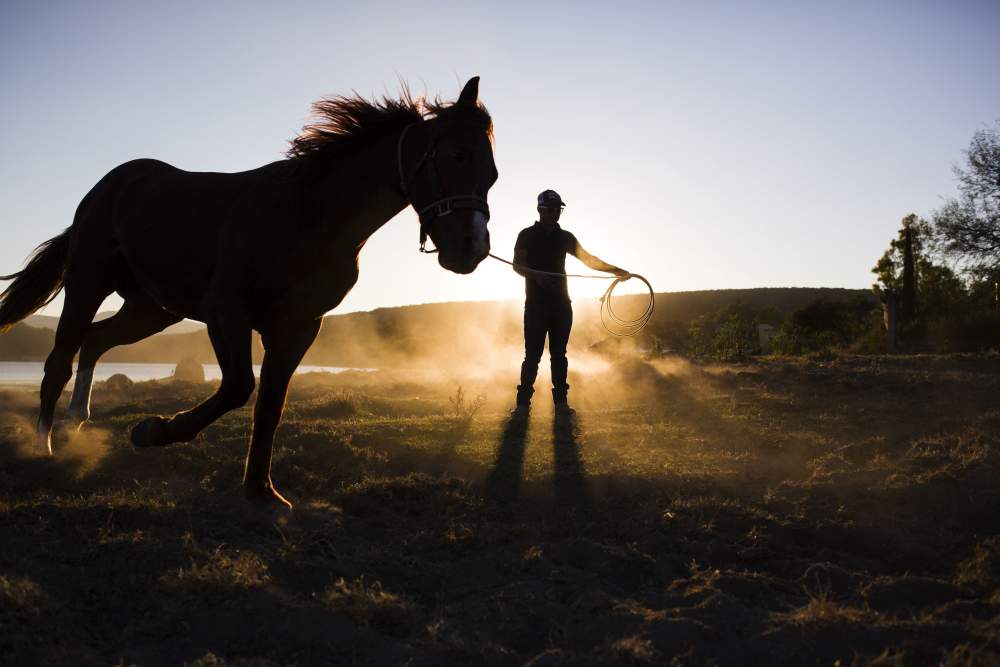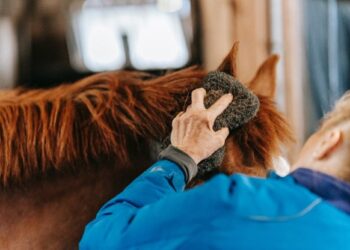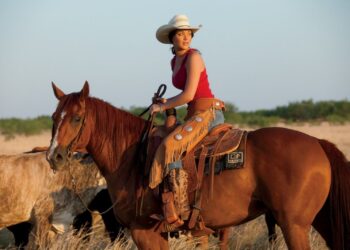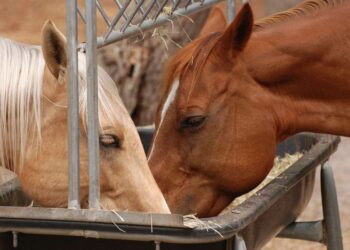Some horses eat literally anything, while other horses are exceptionally choosy. But the owner will always notice if the eating behavior of his or her horse is subject to change. This can have various causes and it can also be expressed in various ways by a horse.
For example, there are horses that suddenly start eating sand or horses that suddenly no longer want to eat concentrate. Of course, there is always a cause for this, the horse tries to tell you something that way. Fortunately, there are a number of causes that are well known so that you can help the horse so that it can eat better afterward.
Different eating behavior in horses
Horses show in various ways that something is wrong with their health or diet. Common signs are:
- eat sand
- eat certain herbs
- no longer wanting to eat concentrates
- gnaw on wood
- eat manure
Of course, a changed diet in a horse does not always indicate enormous health problems. But always keep an eye on it.
Horses that eat sand
That horses occasionally eat sand is quite normal actually. Horses are still close to nature and sometimes dig for certain soil layers in which minerals or trace elements can be found and then lick them. But whole bites of sand, especially if they normally do not, are much less normal and also very unhealthy for the intestines (risk of sand colic). Eating a lot of sand can have various causes, including boredom.
But also a shortage of salt or a shortage of fiber (roughage) can very well be the cause of sand eating. Often you see, for example, if you give a salt lick or add some salt to their diet that the problem of eating the sand is solved within a few days. Whether a lot of sand has ended up in the intestines in the meantime can be checked with a kind of manure test.
Reading suggestions; 500 Horse Names For Male and Female Horse Names
To do this, dissolve some manure balls in a bucket of water and let the bucket stand for 24 hours. Then carefully pour off the water and manure. Any sand in the manure and the water has settled to the bottom of the bucket in 24 hours. If there is more than a teaspoon of sand in the bucket, it might be a good idea to check with your vet about what to do. Often a treatment of flea seed/psyllium fiber is then prescribed. You can also buy this yourself on the internet.
Eat certain herbs
Sometimes it is suddenly noticeable that horses suddenly want to eat certain herbs. This too can help you “read” the health of your horse. For example, eating dandelions and thistles a lot indicates that horses want to support their liver. And sudden interest in chamomile may be on inflammation somewhere.
Horses often eat plantain when there are problems with the mucous membranes, such for example with respiratory complaints. But also completely healthy horses like to eat various herbs and plants of course!
Reading suggestions ; 500 Horse and Racehorse Names
Do not want to eat concentrate anymore
Horses that normally always enjoy their concentrates deliciously and suddenly do not want to eat it anymore are also quite common. Unfortunately, in many cases, this can indicate stomach problems, colic, or general illness. A clear alarm signal that you should not just ignore.
With stomach problems, it is often noticed that they still eat their roughage, but no longer want kibble or muesli. If horses are really sick (fever) or have colic, they often don’t want to eat anything at all.
Gnawing on wood
Eating on wood can indicate, among other things, a shortage of salt. Sometimes a salt lick will offer a solution, but not all horses lick a salt lick. Then it is sometimes necessary to add some salt to their concentrate or mash.
Eating manure
Horses eat manure for various reasons. Often it indicates a shortage of minerals and trace elements. But a shortage of good intestinal bacteria can also be a reason. There are even people who give their horse a little bit of manure from another healthy horse to “inoculate” the intestines of their own horse: to provide them with all kinds of healthy bacteria.
If a horse eats manure, it is worth considering giving your horse a vitamin and mineral supplement for a while. After a while, the manure should stop eating.









